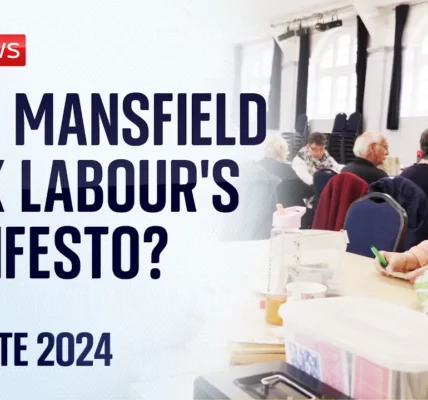Protests Erupt in Kenya Over Controversial Tax Law Changes

The streets of Kenya have been filled with demonstrators expressing their discontent over newly proposed tax laws that threaten to increase the cost of living significantly. This article delves into the factors igniting these protests, the political landscape under President William Ruto, and the broader implications for the nation and the African continent.
Introduction
In the past week, protests have erupted across various cities in Kenya as citizens express their frustration over a proposed tax law that is expected to inflate prices on essential goods, including bread, diapers, and internet data. This discontent has drawn attention to President William Ruto, who ran on a platform promising to uplift the working poor while simultaneously facing scrutiny for his government’s perceived extravagance and corruption. This situation is emblematic of a broader cost of living crisis affecting many African nations, exacerbated by external factors such as the COVID-19 pandemic and the ongoing war in Ukraine.
The Root Causes of the Protests
The protests in Kenya have been largely driven by the rising cost of living and the government’s financial policies. Here are some key factors contributing to the unrest:
- Proposed Tax Increases: The new tax law is aimed at increasing government revenue but is perceived as a direct attack on the livelihoods of ordinary Kenyans.
- Historical Context: The dissatisfaction stems from years of economic struggles, characterized by high unemployment rates, especially among the youth.
- Perceived Government Corruption: Many Kenyans are disillusioned with the government, citing corruption scandals involving high-ranking officials, which fuel their anger towards proposed austerity measures.
Public Sentiment and Government Response
The public mood has shifted dramatically as citizens, particularly the youth, take to the streets. Their sentiments can be summarized as follows:
Disillusionment with Leadership
Many protestors feel betrayed by President Ruto, who promised to champion the working poor during his campaign. Instead, they see a government that indulges in luxury while asking the populace to tighten their belts:
- Recent reports of lavish spending by government officials have exacerbated tensions.
- Ruto’s controversial state visit to the United States, which included an expensive private jet, has drawn ire from citizens struggling to make ends meet.
Government’s Heavy-Handed Approach
In response to the protests, President Ruto has adopted a firm stance, deploying military forces and labeling the demonstrations as treasonous:
- Ruto’s rhetoric has intensified, marking a critical turning point in his administration’s approach to dissent.
- His previous pledges to cut corruption and improve the economic situation seem to be overshadowed by current events.
Comparative Analysis: Lessons from Other African Nations
The challenges facing Kenya are not unique but resonate across the continent. Several factors can be observed in other nations:
- Economic Instability: Countries like Zimbabwe and South Sudan have faced similar protests over economic policies that burden the poor.
- Youth Unemployment: High rates of unemployment among the youth have led to increased political activism in nations like Nigeria, where citizens demand accountability.
- Corruption and Governance: Corruption scandals in various African countries have often triggered public outrage and demands for reform.
Conclusion
The protests in Kenya serve as a critical reminder of the impact of economic policies on everyday lives. As citizens rally against the proposed tax law, they demand accountability and change from their leaders. The situation in Kenya reflects broader trends across Africa, where economic hardships and government mismanagement continue to ignite public outrage. It remains to be seen how President Ruto will navigate this crisis, but the voices of the Kenyan people will undoubtedly play a pivotal role in shaping the future of their nation.
Call to Action: It is crucial for citizens, activists, and policymakers to engage in open dialogues about economic reforms and to advocate for transparency and accountability in governance. For more insights on related topics, visit our articles on African political movements and economic challenges in Africa.
“`




